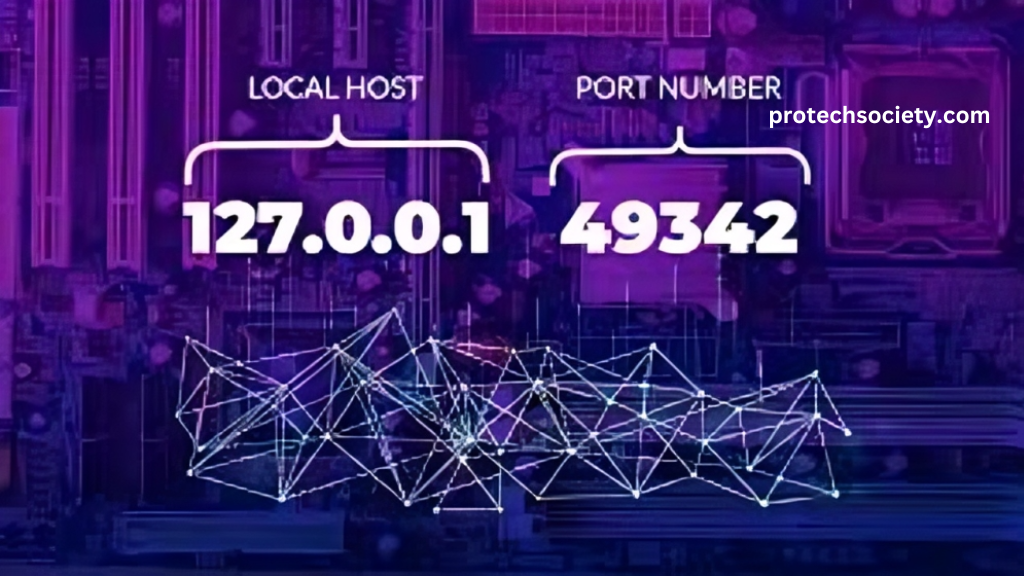Due to this highly computerized and technological world, beginners and advanced developers must learn computer networking. Hosting addresses, such as 127.0.0.1:49342, are among the most basic and quickly understood networking principles. But where is the use? How does that operate? Let us then explore this notion, 127.0.0.1:49342, and further examine the importance of this understanding to networking.
Table of Contents
ToggleUnderstanding 127.0.0.1 and Localhost
What is 127.0.0.1?
127.0.0.1 is known as “the loopback address” and is commonly called “localhost.” A computer uses one specific I.P. address to send messages from within the same computer. That’s why it will be crucial for testing without moving traffic across the more outstanding network.
What Does 49342 Represent?
Basics of Port Numbers in Networking
In networking, a port number is a channel by which data is sent and received. Every application or service on a connected device to the network is assigned a port number; therefore, more than one service can be performed on a device simultaneously. Ports range from 0 to 65535, and every number represents a predefined protocol or function.
How Ports such as 49342 Interact with 127.0.0.1
Used together, 127.0.0.1 and 49342 form a dedicated channel over which data is transmitted locally. Consider 127.0.0.1 your house number and 49342 your apartment number; this ‘apartment’ purpose is for developing and testing applications in an enclosed space.
The Role of 127.0.0.1:49342 in Development Environments
Setting Up Localhost for Testing
Any web developer values testing all applications before they go live; he ensures that using localhost, for instance, on a dedicated port like 127.0.0.1:49342, simulates how the website or application will run on the Internet, catching bugs and improving smooth performance.
Benefits of Using 127.0.0.1:49342 for Web Developers
Running applications on localhost with port number, say, 49342 allows developers to make changes while testing interfaces and running through errors in real-time without disrupting live environments. This is a safe and efficient way to ensure quality and stability before public release.
Debugging and Troubleshooting with Localhost
127.0.0.1, etc., along with a port number, for example, 49342, creates a safe workspace so it is possible to diagnose and troubleshoot the issue. This is one way of testing new code or assisting in tracing glitches. Localhost is a great resource for running tests and finding solutions.
Security and Privacy Concerns
Keeping Localhost Safe from External Threats
While localhost itself is mostly safe, risks may appear through configuration files or applications that allow access outside your device. For a networked device to be safe from external threats, one must limit access to 127.0.0.1:49342.
Common Vulnerabilities with Ports
Port numbers like 49342 can be open to cyber-attacks sometimes if accessed. Firewall protection and configurations will ensure this local host port stays safe from unauthorized access.
How to Secure 127.0.0.1:49342 Properly
Keeping port 127.0.0.1:49342 secure involves only using trusted applications to access it, firing up local firewalls, and looking out for any suspect activity. Regular software updates on this port also prevent and eliminate potentially vulnerable holes in the system.
Practical Applications of 127.0.0.1:49342 in networking

Web Application Testing on Localhost
127.0.0.1:49342 is commonly used to create a safe testing ground for applications, where they can preview how the site will function without breaking their live systems.
Local Development Versus Production Environment
The case of local development and production differs in terms of control. Developers are permitted to control the environment in 127.0.0.1:49342, allowing them to perfect the functionality and U.I. and improve the performance before the application enters the production stage.
Using 127.0.0.1:49342 in API Development
API development heavily relies on local configurations. With an appropriate port, for example, 49342, developers can make real-time API calls to test the systems and acquire response time, latency, and other performance issues before settling the rest of things in check.
Troubleshooting Common Issues with 127.0.0.1:49342
Why You Might Face Connection Errors
Connection problems on 127.0.0.1:49342 often arise due to conflicts with other applications running on the same port or configuration flaws. Determining the real problem will solve the interruptions.
Diagnosing Port Conflicts on Localhost
If 49342 is in use, it causes a conflict and will likely produce errors. Tools such as netstat or lsof can search for conflicting applications. As such, you may change the port number or terminate the contradictory process.
Steps to Resolve Issues with 127.0.0.1:49342
Connection issues on 127.0.0.1:49342 can be resolved by troubleshooting port conflicts, reading the error messages, and restarting the relevant processes. This step-by-step process usually resolves the most common local host problems.
Conclusion
127.0.0.1:49342 might seem complex, but it is a pretty straightforward concept in terms of networking. The localhost address and port number are helpful tools for developers, I.T. professionals, and network administrators to establish a secure, private space for development, testing, or debugging. Once you understand how 127.0.0.1 and port numbers such as 49342 work together, you can tap into the full potential of localhost in your applications.
FAQs
What is 127.0.0.1:49342?
A local host address will use a specific port, 49342, to acquire its facility for secure testing and development on a local computer.
Is there any risk in accessing the web through the address 127.0.0.1:49342?
There is no risk. It works on the device and does not solicit outside help unless directed.
What are the steps you would take to resolve issues in 127.0.0.1:49342?
The steps include:
- Checking for the conflict in the port.
- Restarting the service.
- Determining what’s within the configuration settings.
How does 127.0.0.1 differ from other I.P. addresses?
127.0.0.1 is a loopback address used for local testing while others connect your computer or device to outside networks.
Read more about 127.0.0.1:62893




